|
A Virtual Walk Through Jacksonville History Stop 42: Jacksonville’s First Schoolhouse The southern portion of the house at 560 North Oregon Street is believed to have been Jacksonville’s first schoolhouse, constructed in 1856. However, this was not the original site of the school.
The first public school district in Jackson County, School District No. 1, had been organized in Jacksonville on August 11, 1854. In 1855, $600 in taxes were raised “to be expended in building a school in said district” to be located “near the main traveled road leading from
Jacksonville to Scottsburg and near the line of James Clugage and J.N.T. Miller land claim.” Miller’s land claim was on the opposite side of North Oregon so the schoolhouse site would have been closer to what is now Autumn Lane. But then again…. A year later Joseph Burpee sold all “right, title, interest, claim” in the schoolhouse belonging to District Number One “situated one-fourth of a mile north of Jacksonville on land claims of Clugage and Poole.” An 1864 map of Jacksonville shows a small “District School” building located on the west side of the street and north of the present parcel. It’s possible that the school district trustees opted to buy an existing structure rather than build one. It’s also possible the schoolhouse was actually moved—a common occurrence at the time—or a different location was chosen for the initial building. So how did the schoolhouse arrive at its present site? By 1866, the student population had grown so much that the original schoolhouse was overflowing. Encouraged by the success of St. Mary’s Parochial School, the school district trustees resolved to build a new school. In the spring of 1866, a tax was levied to purchase or lease suitable ground for a new schoolhouse and to make the necessary improvements. Bigham’s Knoll was chosen. The School Trustees set aside $1600 to be paid to David Linn, the builder, who industriously had at it, and by 1868, only fourteen years after the initial steps were taken back in 1854, Jacksonville had a new public school building.
According to Jackson County financial ledgers, “the old District school house was sold to R. S. Dunlap for $137, which was the amount the District owed him for improvements – digging well, making fences, walks, etc. – about the new school house.” In 1862, Dunlap had purchased the property at 560 North Oregon, but no mention of a structure appears in the deed and no structure appears on the 1864 map. However, an August 29, 1868 Oregon Sentinel article reported “a number of young people went round on Monday night and gave friend Dunlap’s new house a finishing touch.” Dunlap’s “new house” is thought to have been the converted schoolhouse which he had moved to his lot. So who was R.S. Dunlap! Robert Sergeant Dunlap is probably best known as the sexton of Jacksonville’s Pioneer Cemetery. For over 30 years he buried the residents of the “silent city on the hill” for $5 a grave, even those who died from highly contagious diseases during the many epidemics that plagued the town. But his “curriculum vitae” is much more diverse and colorful than that. Born in Missouri in 1827, Dunlap was one of seven siblings. His father died when he was 11. By the time he was 18, he had enlisted in Company H of the 1st Missouri Mounted Infantry which served in the Mexican War. From there he found his way to California during the gold rush.
He had landed in Oregon by 1851 where it seems he initially became involved with some unsavory characters—or was in the wrong place at the wrong time. At any rate, according to the journals of lawyer B.F. Dowell, in 1851 Dunlap was indicted for murder in Polk County, Oregon, along with “a murderer and his brother.” The victim had been robbed of his watch. When he accused the thief, the thief “saved his honor” by “maliciously [shooting the victim] in the field while plowing.” The murderer was convicted and sentenced to be hung. His brother was convicted as “accessory after the fact” and sentenced to three years in jail. Why Dunlap was indicted is unclear. His first trial ended in a hung jury. After a change of venue, Dunlap was convicted by a second jury and sentenced to be hung. However, Dunlap was pardoned after the murderer, while on the gallows, “confessed the theft and murder and told where the watch was concealed.” Dowell went on to note that Dunlap “is living and for many years has been a good citizen of Jackson Co., Oregon.” Dunlap was certainly working as a carpenter in southern Oregon by 1856. In 1857 he was awarded an $845 contract for the carpenter work on the new county jail “inclusive of the ironwork and the blacksmithing.” He was named cemetery sexton no later than 1871. Given his “digging skills,” Dunlap was awarded the contract for excavating the ground for the new courthouse in 1883.
Dunlap served as juror, election clerk, “road viewer” (assessing any damages resulting from road construction), road supervisor, and estate appraiser. At various times he is also listed as drayman, freighter, farmer, and even nursery man. On his North Oregon Street property, he had a small orchard of mixed fruits along with a vegetable garden. He sold the produce to town residents and advertised the sale of fresh garden seeds in the town newspaper. He also grew hay on this or another property he owned. Fletcher Linn fondly recalled the special interest Dunlap took in Jacksonville’s young people. “Mr. Dunlap was always a great friend to the boys in the neighborhood.” According to Linn, every harvest he would take a full load of boys on a “’hay-rack’ ride, with bedding and provisions to spend the night together, and enjoy various games on the banks of the Rogue, in return for their united assistance in helping to get his annual hay crop stored in his large hay barn.” In 1904, Dunlap moved to the Oregon Soldiers Home in Roseburg where he died four years later. At a farewell gathering prior to his move, a newspaper clipping reported that some of Jacksonville’s most notable citizens gave short addresses commending Dunlap for the “sterling honesty and truthfulness and the unvarying kindness and generosity that Sergeant Dunlap had always shown to everybody, regardless of their position in life.”
Sources Cited: “Benjamin Franklin Dowell,” Bancroft Library MSS P-A 26. Evans, Gail E.H. State of Oregon Inventory of Historic Properties, “First School House in Jacksonville,” February 1980. https://www.findagrave.com/memorial/3886130/robert-s-dunlap “Fletcher Linn Memories,” Southern Oregon Historical Society. Jackson County Commissioners’ Journals, 1873-1874. The Table Rock Sentinel,April 1983, Southern Oregon Historical Society. |
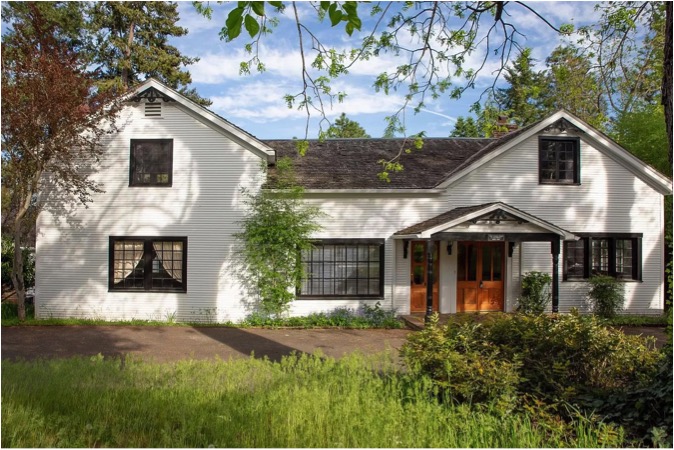
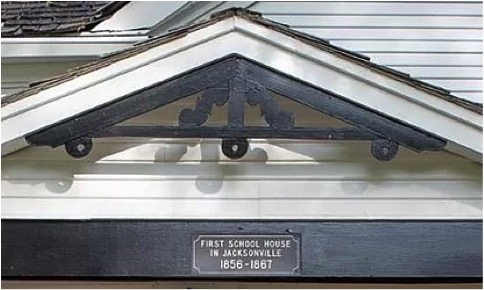
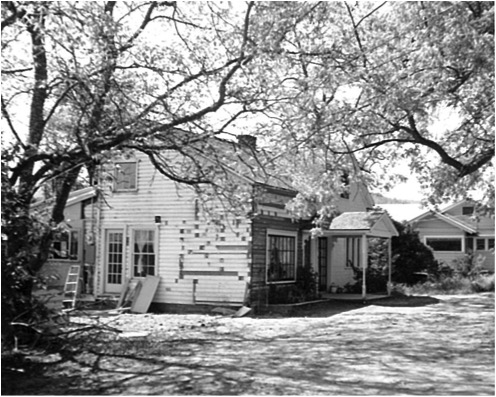 560 North Oregon before final
560 North Oregon before final 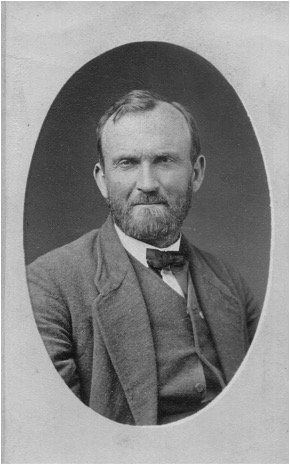 Robert Sergeant Dunlap
Robert Sergeant Dunlap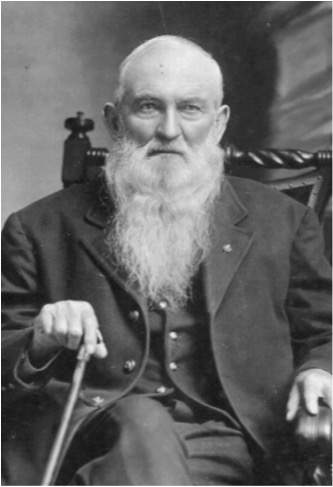 Robert Sergeant Dunlap, 1907.
Robert Sergeant Dunlap, 1907.